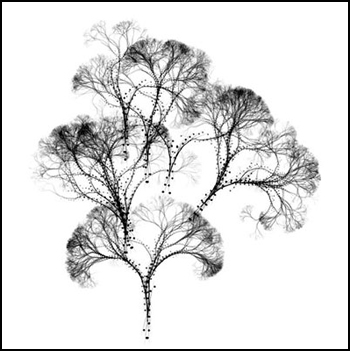 The web 3.0 video below reviews the concept of the semantic web and frames it in a way that most can understand. It’s worth watching and the focus of the semantic web is context. “Joshua wrote the post” or “Sarah watched the movie”. This is something that Google doesn’t do. They’re trying to do it with social search but let’s be very clear about Google’s search; it’s an academic exercise. It scans all content and then weighs it to see which one is the most relevant based on search. Even if social search does work, it will soon be without Facbook’s massive amount of content. Bing aims to be a business driven search engine. It will provide business focused search results before returning pure information. Neither of these are designed to search engines are structured to provide context in a real world sense and both have gone to Twitter and Facebook to provide intent (context-based) results.
The web 3.0 video below reviews the concept of the semantic web and frames it in a way that most can understand. It’s worth watching and the focus of the semantic web is context. “Joshua wrote the post” or “Sarah watched the movie”. This is something that Google doesn’t do. They’re trying to do it with social search but let’s be very clear about Google’s search; it’s an academic exercise. It scans all content and then weighs it to see which one is the most relevant based on search. Even if social search does work, it will soon be without Facbook’s massive amount of content. Bing aims to be a business driven search engine. It will provide business focused search results before returning pure information. Neither of these are designed to search engines are structured to provide context in a real world sense and both have gone to Twitter and Facebook to provide intent (context-based) results.
In case you’ve been under a very very large rock lately. Facebook now has over one bazillion users and has the largest walled garden online that you can imagine. They will get to 1 billion users. The majority of the content created is riddled with context. From, what’s going to who it’s relates to. Last year Facebook signed deals with Google and Bing to have search results return Facebook content. I believe this is to test just to get a feeling for how results will work for purely algorithmic results.
Enter Rockmelt. Not much is known about the browser being created but it’s rumored to be a Facebook only browser. If this is true, look for Rockmelt to be the first widely adopted semantic web browser with users providing the context. In the video, the concept of ontology is discussed and the dissenters believe that “a little structure goes a long way”. (The image above visualizes this with 56.8 million distinct shapes and 2.1 million branches created with only 16 instructions!) One of the issues of the semantic web lies in the fact that people perceive things differently. Facebook provides a “common cultural platform” to share experiences. This could act as a tremendous intermediary step towards semanticness!
I can’t find the post but I read that the future of search results according to some extermely smart people will be three levels. 1) Social, 2) Business, 3) Algorithmic. Wish I could find that post . . .
On the off chance that the Rockmelt developers are not creating this; would somebody please contact them and let them know that they should be?